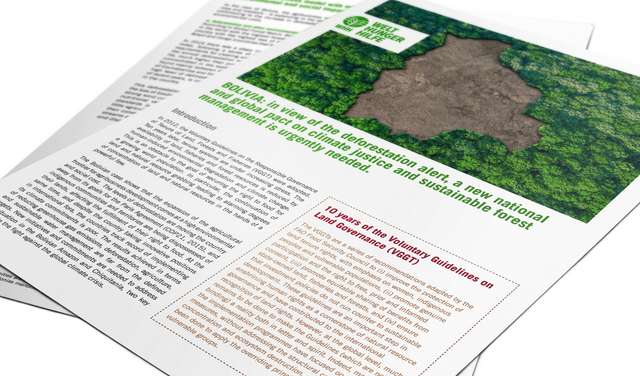
Bolivia: 10 years of the Voluntary Guidelines on Land Governance

In 2012, the Voluntary Guidelines on the Responsible Governance of Tenure of Land, Forests and Fisheries (VGGT) were adopted. Ten years later, tenure systems are under increasing stress. The availability of land, fisheries and forest resources is reduced by human-induced environmental degradation and climate change. This is an obstacle to the goal of securing the right to food for a growing world population. In particular, the continuation of land and natural resource grabbing leading to alarming degrees of concentration of land and natural resources in the hands of a powerful few.
The Bolivian case shows that the expansion of the agricultural frontier for agribusiness development comes at a high environmental and social cost. The levels of deforestation are moving the country away from its goals for the Paris Agreement (COP21, 2015), and indigenous communities and territories are being dispossessed of their lands, affecting the fulfilment of their right to food. At the same time, and despite the country taking innovative positions in international fora, the countries track record of implementing its climate commitments is poor. The results achieved in terms of reducing greenhouse gas emissions, deforestation, agriculture, and sustainable water management are far from the defined targets. New initiatives and commitments are needed to address the situation in the Bolivian Amazon and Chiquitanía, two key regions in the fight against the global climate crisis.






